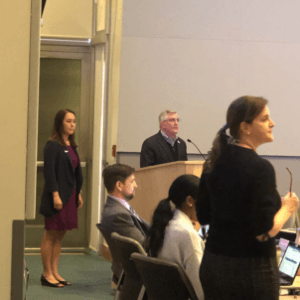
With its Metastatic Brain Tumor Initiative, the American Brain Tumor Association (ABTA) is taking the lead to ensure patients diagnosed with brain metastases are represented in clinical trials and have access to the educational and support services needed to support their journey.
Approximately 200,000 cancer patients are diagnosed with brain metastases every year with the most common types of primary cancer being breast, colon, kidney, lung and skin (melanoma). Once diagnosed, these metastases can create a more serious diagnosis for the patient and a new set of cognitive and physical challenges that complicate their quality of life and the development of treatments.
The ABTA recently participated in a U.S. Food and Drug Administration (FDA) workshop, alongside patient advocacy organizations, medical institutions and pharmaceutical companies to identify key challenges and opportunities for developing treatments of central nervous system (CNS) metastases.
ABTA President and CEO, Ralph DeVitto and Chief Mission Officer, Nicole Willmarth, PhD, presented data from the ABTA’s patient and caregiver survey to provide insight into the treatment and care journey for brain metastases.
“As we learn more about the journey of patients diagnosed with brain metastases, it’s clear more needs to done to support this patient community,” said Ralph DeVitto, ABTA President and CEO. “At the ABTA, we are committed to identifying and addressing the needs of patients and caregivers.”
Later this year, the ABTA will conduct a survey with medical professionals to better understand gaps in knowledge or perception between the patient and their doctors. A complete summary of survey findings is expected to be released late fall.
